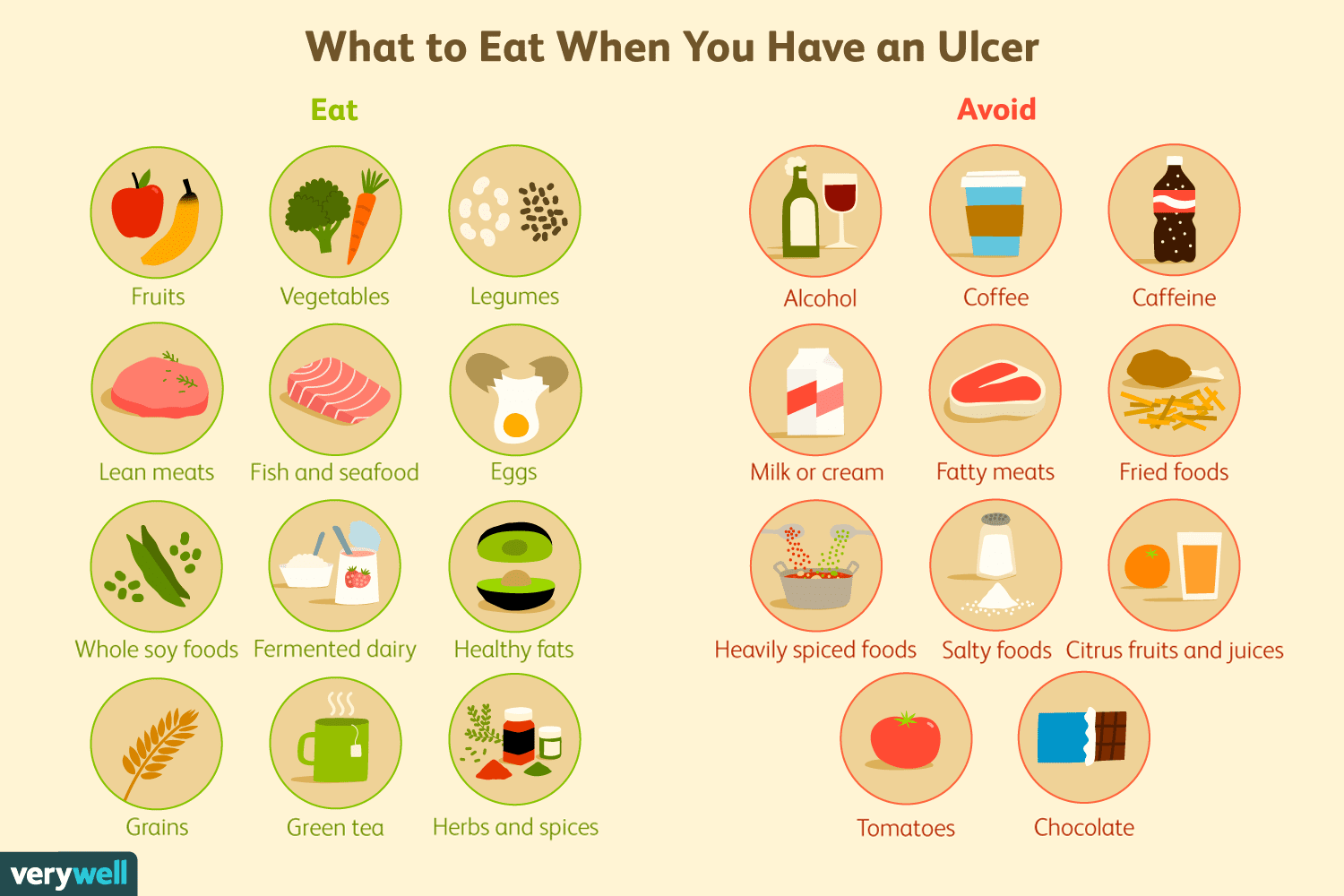
Managing peptic ulcers involves not only medical treatment but also dietary adjustments. The foods you eat can significantly impact ulcer healing and symptom management. This guide will explore how diet affects ulcer health, identify foods that promote healing and those to avoid, and provide a sample meal plan for individuals with ulcers.
How Diet Affects Ulcer Health
Diet plays a crucial role in the management of peptic ulcers. Certain foods can exacerbate symptoms, while others can promote healing and alleviate discomfort. The goal of a diet for ulcer patients is to minimize irritation to the stomach lining, reduce acid production, and support overall gastrointestinal health.
- Irritation of the Stomach Lining: Some foods can irritate the stomach lining, increasing inflammation and acid production. This can lead to increased pain and discomfort associated with ulcers.
- Healing Properties: Certain foods contain nutrients that can help heal the stomach lining, reduce inflammation, and promote overall digestive health. Incorporating these foods into the diet can aid in recovery and prevent recurrence.
Foods That Promote Healing
Incorporating specific foods into your diet can support the healing of peptic ulcers:
1. Yogurt and Probiotics
Yogurt, especially varieties containing live probiotics, can promote gut health by balancing stomach bacteria. Probiotics help reduce inflammation and may inhibit H. pylori growth, aiding in ulcer recovery.
2. Leafy Greens
Dark leafy greens like spinach, kale, and Swiss chard are rich in vitamins and minerals that can support overall health and digestion. They are also low in acidity, making them gentle on the stomach.
3. Bananas
Bananas are a great choice for ulcer patients because they are soft, low in acidity, and contain compounds that may help coat the stomach lining and reduce irritation.
4. Oatmeal and Whole Grains
Whole grains, including oatmeal, brown rice, and whole wheat bread, provide fiber and essential nutrients. They are also less irritating to the stomach compared to refined grains.
5. Lean Proteins
Incorporating lean proteins such as chicken, turkey, and fish can help in healing while providing essential nutrients without aggravating ulcer symptoms.
Foods to Avoid
Certain foods can worsen ulcer symptoms and should be limited or avoided:
1. Spicy Foods
Spices can irritate the stomach lining, leading to increased discomfort. It’s best to avoid spicy dishes, hot sauces, and heavily seasoned foods.
2. Caffeine
Caffeinated beverages, including coffee, tea, and soda, can stimulate acid production in the stomach. Reducing or eliminating caffeine can help manage ulcer symptoms.
3. Alcohol
Alcohol can irritate the stomach lining and increase acid production, exacerbating ulcer pain. It’s advisable to avoid alcoholic beverages altogether.
4. Acidic Foods
Citrus fruits, tomatoes, and vinegar can irritate the stomach lining and should be consumed with caution or avoided altogether.
5. Fried and Fatty Foods
Greasy or fried foods can increase discomfort and should be limited in an ulcer-friendly diet.
Sample Meal Plan for Ulcer Patients
Here’s a simple one-day meal plan designed for individuals managing peptic ulcers:
Breakfast
- Oatmeal made with water or low-fat milk, topped with sliced bananas and a sprinkle of cinnamon.
- A cup of herbal tea (non-caffeinated).
Snack
- A serving of plain yogurt with a drizzle of honey.
Lunch
- Grilled chicken breast served with steamed spinach and quinoa.
- A small side salad with cucumbers and a light dressing (avoid acidic dressings).
Snack
- A handful of unsalted almonds or walnuts.
Dinner
- Baked fish (such as salmon) with a side of sweet potatoes and sautéed zucchini.
- A cup of herbal tea or warm water.
Dessert
- A small serving of applesauce or mashed banana.
Conclusion
Diet plays a vital role in managing peptic ulcers and promoting healing. By incorporating foods that support digestive health and avoiding those that irritate the stomach, individuals with ulcers can significantly reduce symptoms and enhance their overall well-being. If you have a peptic ulcer or related symptoms, consider consulting a healthcare professional or nutritionist to tailor a diet that best meets your needs. Making mindful dietary choices can pave the way for effective ulcer management and a healthier lifestyle.

